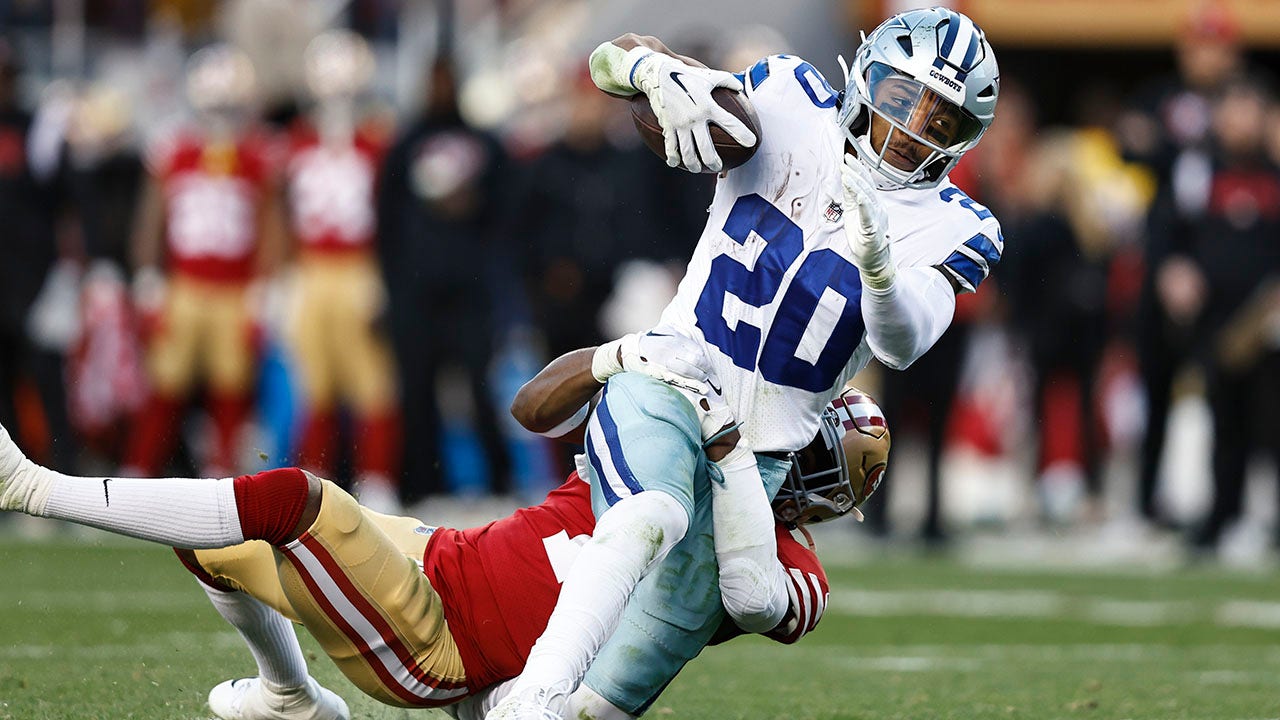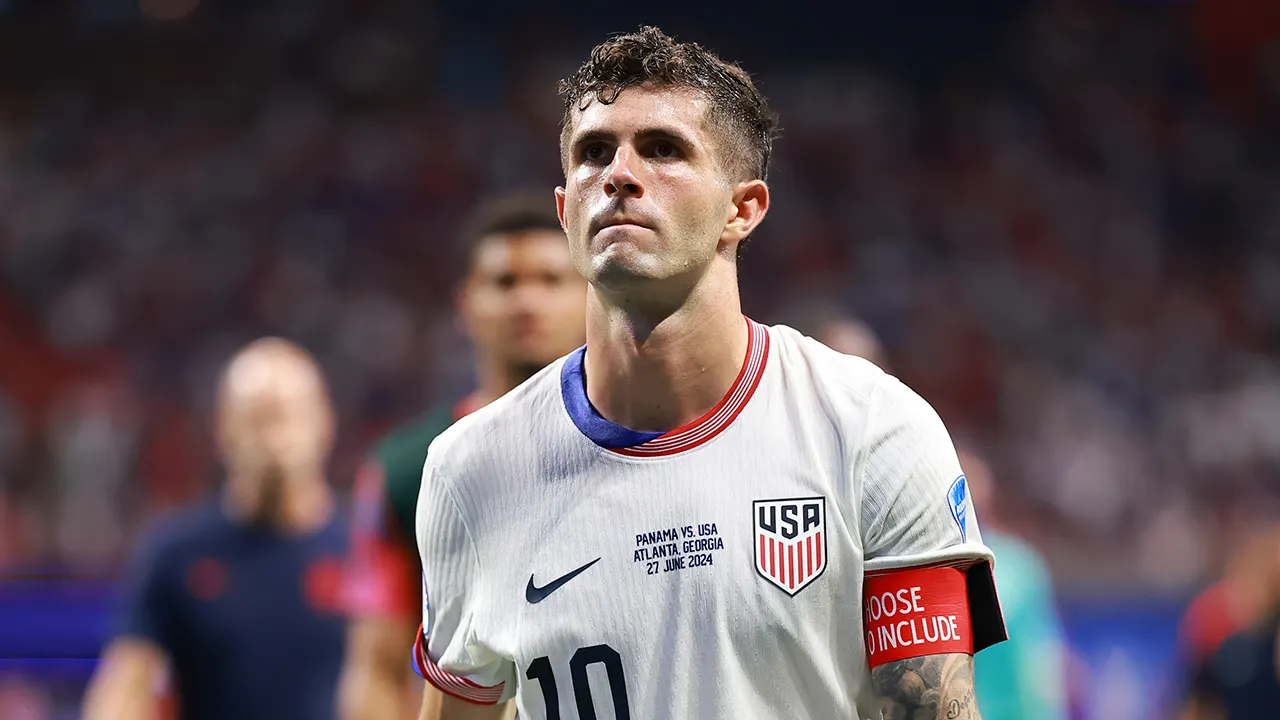Virginia coach Tony Bennett — one of the winningest college basketball coaches in the history of the ACC and the sport at large, who delivered the program’s first and only national championship in 2019 — is retiring, the school announced Thursday afternoon.
Bennett’s retirement is effective immediately and he will hold a news conference Friday. Virginia’s announcement Thursday did not include a reason for his retirement.
Associate head coach Ron Sanchez, who left the head-coaching job at Charlotte last offseason to return to Virginia’s staff, is the most likely choice to be named interim head coach, although Virginia did not publicly name one Thursday. The Cavaliers open the 2024-25 season in 20 days.
“Tony Bennett is, first and foremost, a tremendous person who is also one of the most accomplished coaches in the storied history of ACC Basketball,” said ACC commissioner Jim Phillips. “He is a fierce competitor, but one who always leads with integrity, class and unwavering values. He has made an indelible impact on countless student-athletes and developed them not only in basketball, but also as young men.
“He is a legend who we will deeply miss having on the sidelines as well as his daily impact in the league, the sport and college athletics. We are incredibly thankful for all he did in making college basketball better with his steadfast dedication and commitment to the game. We wish Tony, his wife Laurel, and their entire family all the best in this next chapter.”
Bennett, 55, ends his career not just as Virginia’s all-time wins leader, possessing a 364-136 record over 15 seasons in Charlottesville, but as one of the most storied coaches in ACC and college basketball history. A three-time National Coach of the Year — once at Washington State, and twice with the Cavaliers — Bennett is just the third coach in ACC history to lead his team to 10 consecutive seasons with a winning record in conference play, joining only Hall of Famers Dean Smith and Mike Krzyzewski.
Tony Bennett and Virginia’s 2019 championship run was LEGENDARY 🏆@UVAMensHoops pic.twitter.com/vx2sFrnamm
— NCAA March Madness (@MarchMadnessMBB) October 17, 2024
Bennett flipped Virginia from an ACC afterthought to a national power, mostly predicated on the vaunted packline defense he learned from his father, Dick, who himself was a head coach for 28 seasons. The Cavaliers had basketball history before Bennett — namely during Ralph Sampson’s prime in the early 1980’s, when Terry Holland led the Cavaliers to their first two Final Fours — but Bennett made the Hoos into one of college hoops’ premier programs.
From 2014 through 2023, UVa won the ACC outright or tied for first place six times, a stretch that included earning four No. 1 seeds in the NCAA Tournament. Virginia also won the ACC championship in 2014 and 2018, the first two times it had in the modern era.
“If the news is true, college basketball just lost a man with incredible class, humility, and dignity” Rick Pitino, St. John’s men’s basketball coach and Basketball Hall of Famer, said. “Tony Bennett is an awesome teacher of our game. You will be deeply missed!”
Of course, what Bennett is most famous — or infamous — for is the fact that his Cavaliers became the first No. 1 seed to lose to a No. 16 seed in the NCAA Tournament, when his top-ranked Cavaliers fell 74-54 to UMBC in 2018. (No. 1 Purdue, which lost to No. 16 Farleigh Dickinson in the 2023 NCAA Tournament, is the only other such instance.)
But the following season, with the core of that 2018 roster back, Bennett led Virginia on one of the most storied comebacks in the history of sports, when his Cavaliers overcame the memory of that loss to win the program’s first national championship in an 85-77 overtime win over Texas Tech.

One year after a shocking upset loss to UMBC, Virginia under Tony Bennett won the 2019 national championship (Ryan M. Kelly / Getty Images)
The title in 2019 not only sealed Virginia as one of college basketball’s best stories, but it solidified Bennett’s legacy. Before the championship, Bennett was viewed as another excellent coach who couldn’t get it done in March; despite having won ACC Coach of the Year four times (joining Smith and Krzyzewski as the only men to do so), it took that postseason redemption for him to be considered an all-time college basketball winner.
With his retirement, there are only six remaining active coaches who have won a national title: Dan Hurley (2), Rick Pitino (2), Bill Self (2), Tom Izzo, Scott Drew, and John Calipari. Bennett is the sixth coach with a championship to retire since 2021, following Roy Williams, Mike Krzyzewski, Jay Wright, Tubby Smith and Jim Boeheim. At 55, Bennett is younger than all of them; Wright, who retired from Villanova at age 60, comes closest.
In addition to his packline defense, Bennett’s tenure will be remembered for his player development and the way he slow-cooked talent to create stardom.
He drew a few high-profile recruits to Charlottesville along the way — including four-stars like Kyle Guy, Mamadi Diakite, and Casey Morsell — but the majority of Bennett’s best players took several seasons to emerge as top college players. Ty Jerome, DeAndre Hunter, and Malcolm Brogdon, among others, were all lower-ranked recruits who Bennett turned into not just bona fide studs, but legitimate NBA prospects.
After the COVID-19 pandemic, as name, image and likeness deals and freedom of player movement changed the sport, Bennett’s long-term system was tested. One high-profile recruit Bennett invested heavily in, former wing Isaac Traudt, transferred to Creighton after redshirting his freshman year at Virginia; Bennett admitted publicly he was taken aback by that move, which highlighted (or made clear) college sports’ continuing evolution.
Swimming upstream against that current, Bennett’s teams struggled more lately than during his decade of excellence; UVa won the ACC regular-season title in 2021, but was bounced in the first round of the NCAA Tournament as a No. 4 seed by No. 13 Ohio. The program then missed the NCAA Tournament in 2022 — the first time it had under Bennett since 2013 — before being upset again in the first round in 2023, again as a No. 4 seed (this time to No. 13 Furman).
Last season, the Cavaliers bottomed out offensively, ranking 200th nationally in KenPom’s adjusted offensive efficiency, its worst season-long ranking under Bennett (outside of the COVID-19-canceled 2020 campaign). While Virginia made the NCAA Tournament, it lost in the First Four to Colorado State, mustering only 42 points.
There were rumors Bennett was considering retirement late last season, but those were seemingly put to bed over the summer when he signed a contract extension through 2030.
Bennett then plunged further into the transfer portal than he ever had, signaling a possible modernization of his system; he added multiple starters, like T.J. Power (Duke), Elijah Saunders (San Diego State), Dai Dai Ames (Kansas State), and Jalen Warley (Florida State).
One scout who had been through Charlottesville this preseason — who spoke to The Athletic on the condition of anonymity, because they are not authorized to speak publicly about college players — said he was impressed with Virginia’s talent level and curious how Bennett would rebound after last season’s disappointment.
Instead, it’ll be someone else tasked with keeping Virginia in its current positioning in the college basketball pecking order. Bennett appeared at ACC Tipoff last week and spoke about his team, so the timing is certainly surprising — especially considering Virginia’s season opener is Nov. 6 vs. Campbell.
But there is some precedent for his late decision, even within his family.
The most famous example of a college basketball coach retiring right before the season was Smith, another ACC legend, who famously walked away from a Final Four-caliber North Carolina team just two months before the start of the 1997-98 season.
Part of Smith’s motivation — and a possible sign of Bennett’s thinking — was to ensure his top assistant, Bill Guthridge, would be his successor.
Sanchez — who was one of Bennett’s top assistants from 2009 to 2018, when he got the Charlotte job — is like Bennett’s version of Guthridge, and considering he left a D-I head-coaching job last summer to return to Charlottesville as Bennett’s associate head coach, he’s now in line to potentially be elevated like Guthridge was 25 years ago.
But Bennett’s father, Dick, provides another example, and perhaps another insight into Bennett’s thinking. Dick resigned as Wisconsin’s head coach three games into the 2000-01 season, citing burnout, and ultimately took two years off from coaching before taking the head job at Washington State in 2003.
(Brad Soderberg, who became Wisconsin’s interim coach after Dick’s resignation, is currently one of Bennett’s assistants.)
He coached the Cougars for three years before retiring and passing the baton to his son, who then went 69-33 in three seasons in Pullman. The younger Bennett, who recruited future NBA Hall of Famer Klay Thompson to Wazzu, is the only coach in Washington State history to take the program to back-to-back NCAA Tournaments, in addition to leading the Cougars to their only Sweet 16 since the field expanded to 64 teams.
Bennett will elaborate more on his decision on Friday, when he speaks publicly for the final time as Virginia’s head coach, but going out like this does fit his personality. Even in Bennett’s best years, despite all the winning and accolades, he never craved public attention, and shied away from it whenever possible.
After Krzyzewski, Williams and Boeheim retired from Duke, UNC and Syracuse in recent seasons, leaving the ACC in need of a new coaching voice, Bennett was the obvious replacement — but he was uncomfortable being that broader voice despite his qualifications, always preferring to instead focus on his players and relationships and program. In an industry that craves spotlight, he was the rare exception.
(Photo: Ryan M. Kelly / Getty Images)






